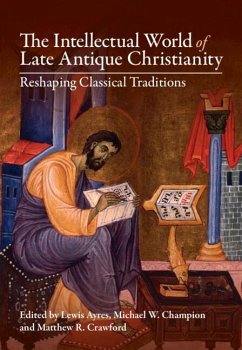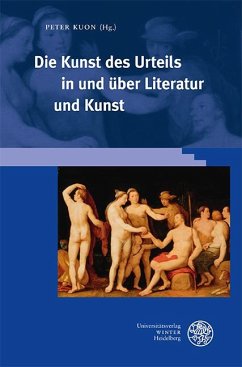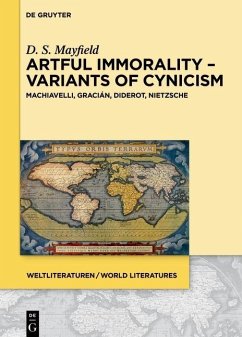
Thoughts on Francis of Assisi (eBook, PDF)
Versandkostenfrei!
Sofort per Download lieferbar
Statt: 81,70 €**
58,95 €
inkl. MwSt.
**Preis der gedruckten Ausgabe (Gebundenes Buch)
Alle Infos zum eBook verschenkenWeitere Ausgaben:

PAYBACK Punkte
29 °P sammeln!
Francis's forma vitae for the Fratres Minores, the original rule for the Franciscan Order, was meant to establish peace and equality among people who worked together in a community, yet each using his own particular talent: an ideal that had a short life. At Francis's death, Pope Gregory IX took the opportunity to use Francis's popularity in order to satisfy his political ambition. Despite the protest of Francis's closest brothers and sisters, the ones who had shared the true experience of the order during his life, the Pope changed Francis's forma vitae into something more palatable and usefu...
Francis's forma vitae for the Fratres Minores, the original rule for the Franciscan Order, was meant to establish peace and equality among people who worked together in a community, yet each using his own particular talent: an ideal that had a short life. At Francis's death, Pope Gregory IX took the opportunity to use Francis's popularity in order to satisfy his political ambition. Despite the protest of Francis's closest brothers and sisters, the ones who had shared the true experience of the order during his life, the Pope changed Francis's forma vitae into something more palatable and useful to the Church. The Franciscan Order became a tool for the Church to reassert control on every issue and in every situation regarding spirituality, religious dogmas, the position of women in society, and material possession. Many of these issues had never been on Francis's agenda. While making Francis a famous saint with a spectacular canonization, at the same time the Church ignored Francis's original and revolutionary concept often deeply opposed to the Church's politics. Thoughts on Francis of Assisi illustrates with historical details the Franciscan Order's makeover devised by the Catholic Church after Francis's death. The Franciscan Order was never what Francis had created. Thoughts on Francis of Assisi is essential reading for graduate course in History, Religious Studies, and Italian Studies.
Dieser Download kann aus rechtlichen Gründen nur mit Rechnungsadresse in A, B, BG, CY, CZ, D, DK, EW, E, FIN, F, GR, HR, H, IRL, I, LT, L, LR, M, NL, PL, P, R, S, SLO, SK ausgeliefert werden.













